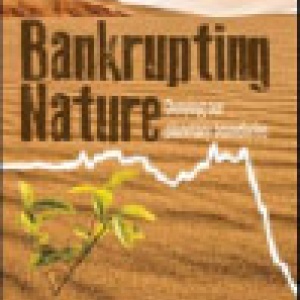
A new book by Anders Wijkman and Johan Rockström argues that we are in deep denial about the magnitude of the global environmental challenges and resource constraints facing the world. The authors argue that regardless of whether governments respond to the economic crisis through additional stimulus packages or reduced government spending, environmental and resource constraints will remain.
The book makes a point of discussing population, criticizing donor countries for not doing enough to support the education of girls and reproductive health services. It argues that an economy built on the continuous expansion of material consumption is not sustainable but that ‘de-growth’ is no solution either. The growth dilemma can only be addressed through a transformation of the economic system. A strong plea is made for abandoning GDP growth as the key objective for development. The focus should instead be on a limited number of welfare indicators. The trickle-down concept is seriously questioned, to be replaced by one of sufficiency. Rich countries are called upon to hold back their material growth to leave room for a rising living standard among the poor. Alternative business models are presented, such as moving from products to services or towards a circular economy based on re-use, reconditioning and recylcing – all with the aim of facilitating sustainable development.
A review in Nature called the ideas presented by the authors as “interesting and often inspiring” but “light on analytical policy discussions.” “To progress, this debate about limits and tipping points needs to be recast as a series of testable hypotheses about resource extraction, land and water use, and energy portfolios, addressable by models and data.”
For more information, click here.
To read the review for this book in Nature, click here.







Post a new comment »